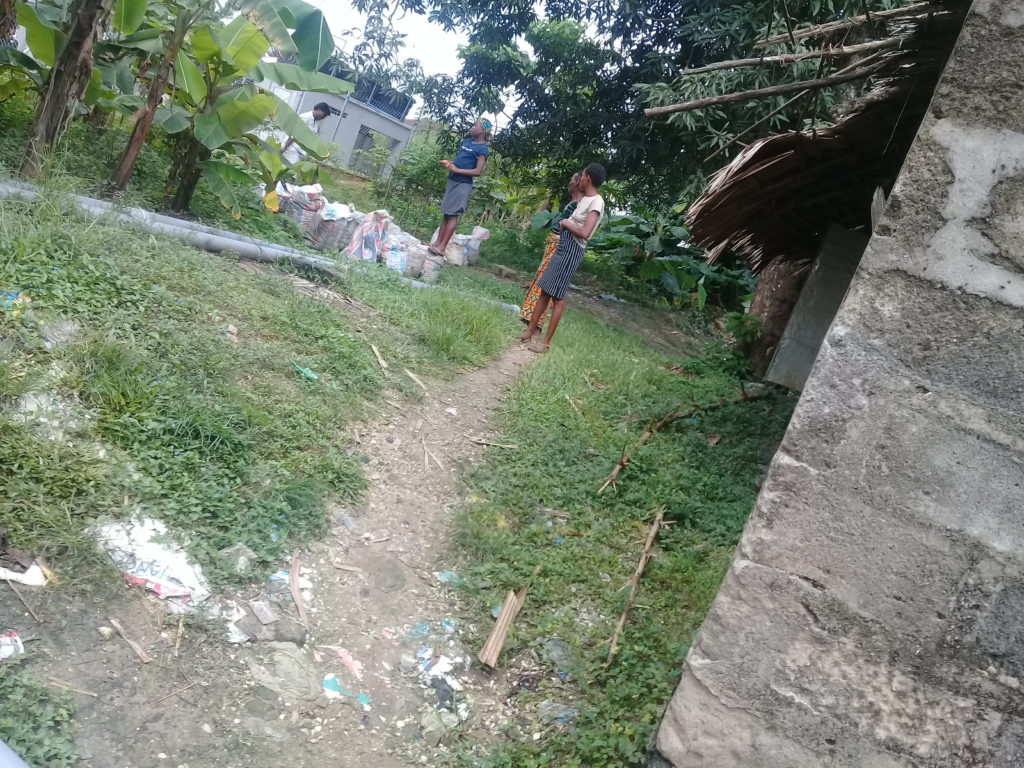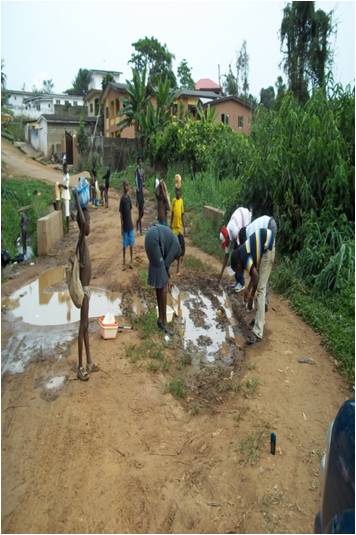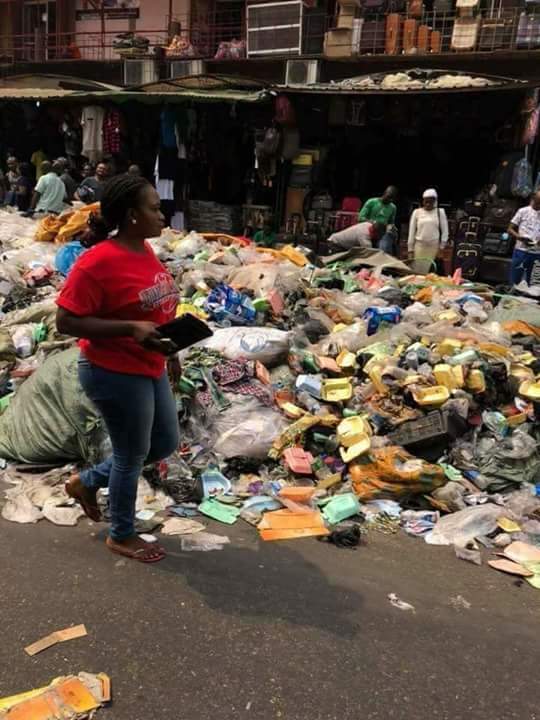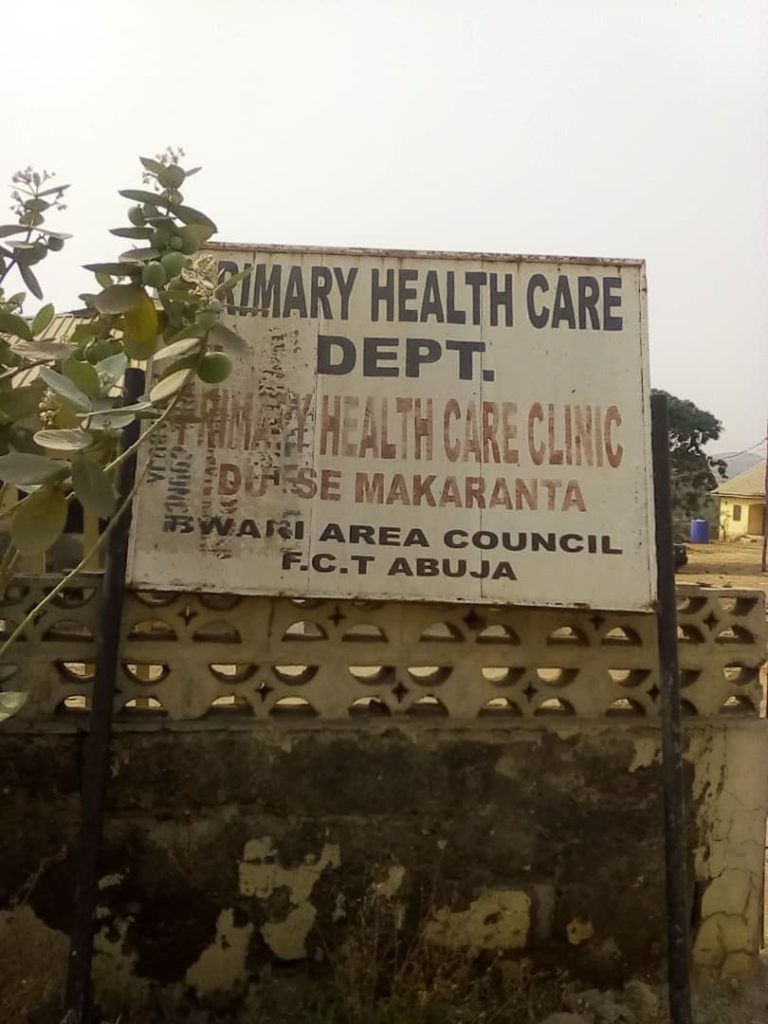
By Ndidichukwu Odoh
When in June 2018 Five years old Michael fell sick, his mother, Adedoyin thought it was just fever and headache that will leave the next day. The first two days past, little Michael’s health got bad, he could not eat, he was in pain then Adedoyin felt it was Malaria.
She took him to the nearby Primary Healthcare Center for test and treatment. Three months after-September-Michael was sick again he was also treated, he became worse in December, his third visit to the hospital in nine months.
Medical tests from the three hospital visits showed he had Malaria. He was treated the first and second time as an outpatient, but the third time Michael was not so lucky, he could no longer walk with his two legs, the doctors said he was losing blood, it was an emergency case, and fortunately he got saved after spending two weeks in the hospital.
“we have been coming to the hospital, since he was sick in June, maybe the drugs are not working for him” said Michael’s mother who alleged that the health facility have not paid more attention to her son’s health since the last nine months.
As a resident of Dutse Makaranta, a suburb of Nigeria’s capital City, Michael’s mother is one among many Nigerians who see it as the responsibility of the Government to keep the environment clean. A visit to Michael’s house explains the living condition of these residents and why Malaria is a common disease in the community.
From the entrance of Michael’s home is a waterlog, the family of five cross over it every day to their home. In the compound, Michael’s mother has buckets of water stored for use, behind the house is a mini vegetable garden. Looking at the back window of the house through the garden one could see Michael’s bed, well dressed without an insecticidal net.
Michael came down with malaria three times in nine months because he was exposed to malaria causing mosquitoes whose vector breed in his home.

Malaria is a parasite and infectious disease transmitted through the bite of an infected female anopheles mosquito during a blood meal. Like Dutse Makaranta residents, “2017 Malaria report estimates that over 191 million Nigerians are at risk of Malaria disease” National Malaria Elimination Program of the Federal Ministry of Health said.
“These Malaria cases happen to people living in a Nigerian community because they breed mosquito vectors in their homes” said Okoko Philip Head of Integrated Vector Management of the National Malaria Elimination Program.

With only 31 countries certified Malaria free in the World, 53 million cases of malaria infection in 2017 happened in Nigeria, Okoko said “the country needs an Integrated Vector Management (IVM) for optimal use of resources for vector control”.
“IVM is a management system which is flexible and can be adapted to local conditions and change. It can follow a cyclical process involving situational analysis, planning, design, implementation, monitoring and evaluation” said Okoko
Like Michael, 21% of Nigerian children below five years die due to malaria. This is even as the World Health Organization (WHO) 2018 World Malaria report suggests that malaria cases has risen from 52.4 million in 2016 to 53.7million in 2017 globally.

“Malaria remains an important public health issue, 97% of the country’s population are at risk which makes it endemic. It also accounts for quarter of malaria burden in Africa. Children below the age of five are most at risk’ said Dr Audu Bala Mohammed during a media dialogue organized to raise media and public awareness on prevention of malaria through environmental management.
A trend from the National Demographic Health Survey (NDHS), finds that U5 mortality has reduced from 201/1000 in 2003 to157/1000 in 2008 and 128/1000 in 2013, However Malaria accounts for 30% childhood mortality and 11% maternal mortality as at 2013 when the last survey was conducted, but a 2015 Nigeria Malaria Indicator survey indicates that there is still a 27% prevalence of which the Northwest has 37% and the Southeast 17%.
Nigeria’s Malaria Elimination Programme (NMEP) says the country loses N480 billion annually due to malaria absenteeism and treatment costs.
While Nigerians wait for resources and political will from government for the NMEP to implement its interventions programs, like the IVM, purchase and distribution of Long lasting insecticidal nets (LLINs), Indoor Residual Spraying (IRS), and scale up malaria awareness programs to Nigerians on personal protective measures, the NMEP said Mosquito Larvae grow more in households because of poor sanitation practises among Nigerian households.
“80% of Nigerians know what to do to prevent malaria but are not doing it, it goes beyond us calling the government, it is about us doing it together” Okoko said.
Michael happens to be lucky to have survived a three time infection from malaria within the space of nine months, millions of Nigerian children were not so lucky, attitudinal change and strict adherence to recommended measures for prevention is important for the people to be safe and support the fight against malaria elimination in Nigeria.






















